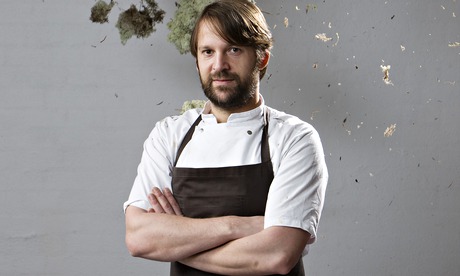
I first went to St John in 2006, for lunch the day after the World's 50 Best Restaurants awards. Seeing Fergus and Trevor [Gulliver] welcoming you was like something from a movie – you felt they were so happy to have you there. The St John ethos is about more than just "Let's cook the snout of the pig." It's about respect, about being warm and generous, and who doesn't enjoy that in any type of restaurant?
We ate whole radishes, with the tops on, steamed. That was extraordinary. It was so refreshing to eat something that wouldn't normally be thought fine enough to eat in a fine dining establishment. It was the beginning of one of our signature dishes at Noma – radishes in soil. The seed of the idea for the dish probably began that day.
Fergus has extraordinary taste, and he doesn't take any crap, so I'm happy he's been to Noma on his own dime, with his wife and friends. We all know what trials he's going through with his illness [he suffers from Parkinson's], and yet he's still Mr Happy.
His training as an architect is important – there's more thought in his whole approach, and he's cleverer than most people in our trade. St John is crucial to what we're experiencing now with restaurants – where cooks can open a simple place, with little money, be respected for the quality of the food, and it doesn't matter if they don't have £2m of scenery.
Fergus told me, "Remember to read a book. Kiss your wife, see your children, travel with them. Don't burn yourself out." I started working when I was 15 and cooks like me had the unrealistic idea that we'd always be in the kitchen, working 90 hours a week. We weren't supposed to step outside. Fergus has been a big influence on me walking across Copenhagen on a Wednesday night at 7.30pm, and not feeling as guilty as I used to about missing one evening's service. Five years ago, if my wife said, "René, I need you, just take a night off and we'll go for dinner," I would say, "No." Now I would do it, and go home early. He's given me the confidence to do that.

